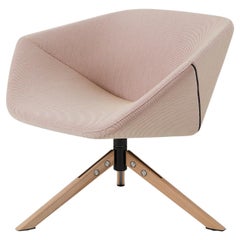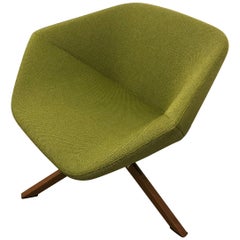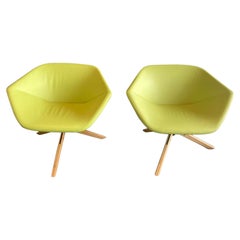Montis Ella Chair
2010s Dutch Lounge Chairs
Metal
Recent Sales
2010s Dutch Modern Chairs
Fabric
2010s Dutch Modern Chairs
Leather
2010s Dutch Modern Chairs
Wool
2010s Dutch Modern Chairs
Wool
2010s Dutch Modern Chairs
Wool
2010s Dutch Modern Chairs
Fabric, Walnut
People Also Browsed
21st Century and Contemporary Brazilian Modern Chaise Longues
Fabric, Hardwood
21st Century and Contemporary Swedish Scandinavian Modern Wall Lights an...
Metal
Vintage 1930s Swedish Scandinavian Modern Vases
Bronze
21st Century and Contemporary Spanish Minimalist Side Tables
Marble, Travertine
21st Century and Contemporary American Bohemian Chandeliers and Pendants
Brass
Vintage 1940s Italian Art Deco Sofa Tables
Oak
2010s European Serving Pieces
Marble
2010s American Modern Table Lamps
Marble, Brass
20th Century French Modern Cabinets
Wood, Mahogany
Vintage 1940s French Cabinets
Brass
21st Century and Contemporary Danish Mid-Century Modern Chairs
Oak
2010s Vietnamese Organic Modern Side Tables
Plaster
21st Century and Contemporary American Art Deco Sofas
Steel
2010s Italian Armchairs
Leather, Fabric
21st Century and Contemporary Italian Modern Sectional Sofas
Steel
Late 20th Century French Daybeds
Fabric, Foam, Elm
Montis for sale on 1stDibs
Modern Dutch design owes a great deal to Gerard van den Berg. While the Netherlands has a rich furniture-making tradition, it took a maverick like Van den Berg to bring it into a new era.
Van den Berg was born in 1947 to a family of designers. His father owned a furniture company in Hellevoetsluis where Van den Berg worked as an apprentice and then designer until he and his brother, Ton, founded their own workshop, in 1974. That company, named Montis, produced mostly upholstered seating for homes and businesses.
At Montis, Van den Berg challenged traditional Dutch furniture forms. Rather than starting with the piece's frame, which he felt was restrictive, he focused on the silhouette. This inspired Van den Berg to create slim and elegant furniture, often featuring angular metal legs and leather upholstery. In 1983, he pioneered the "jacket technique," consisting of a zipped leather cover around a metal frame. Several iconic Montis seats use this technique, including the Chaplin chair, the Butterfly lounge chair and the Rocky sofa.
In 1989, Van den Berg launched his own design studio and began designing for companies like Wittmann, Molteni and Perobell. He left Montis in 1990 to cofound a new company, called Label, with Ton the following year. Today, Van den Berg's son Jasper and Ton's daughter, Marieke, manage Label. Van den Berg's other son, Ivo, is also a designer at the company.
Van den Berg's irreplaceable contributions to furniture design have garnered multiple awards over the years. Some of the most notable include the Kho Liang Prize, the Mobilia Innovation Award and the Prize for Interior Architecture.
Find vintage Montis seating on 1stDibs.
A Close Look at Modern Furniture
The late 19th and early 20th centuries saw sweeping social change and major scientific advances — both of which contributed to a new aesthetic: modernism. Rejecting the rigidity of Victorian artistic conventions, modernists sought a new means of expression. References to the natural world and ornate classical embellishments gave way to the sleek simplicity of the Machine Age. Architect Philip Johnson characterized the hallmarks of modernism as “machine-like simplicity, smoothness or surface [and] avoidance of ornament.”
Early practitioners of modernist design include the De Stijl (“The Style”) group, founded in the Netherlands in 1917, and the Bauhaus School, founded two years later in Germany.
Followers of both groups produced sleek, spare designs — many of which became icons of daily life in the 20th century. The modernists rejected both natural and historical references and relied primarily on industrial materials such as metal, glass, plywood, and, later, plastics. While Bauhaus principals Marcel Breuer and Ludwig Mies van der Rohe created furniture from mass-produced, chrome-plated steel, American visionaries like Charles and Ray Eames worked in materials as novel as molded plywood and fiberglass. Today, Breuer’s Wassily chair, Mies van der Rohe’s Barcelona chair — crafted with his romantic partner, designer Lilly Reich — and the Eames lounge chair are emblems of progressive design and vintage originals are prized cornerstones of collections.
It’s difficult to overstate the influence that modernism continues to wield over designers and architects — and equally difficult to overstate how revolutionary it was when it first appeared a century ago. But because modernist furniture designs are so simple, they can blend in seamlessly with just about any type of décor. Don’t overlook them.
Finding the Right Lounge-chairs for You
While this specific seating is known to all for its comfort and familiar form, the history of how your favorite antique or vintage lounge chair came to be is slightly more ambiguous.
Although there are rare armchairs dating back as far as the 17th century, some believe that the origins of the first official “lounge chair” are tied to Hungarian modernist designer-architect Marcel Breuer. Sure, Breuer wasn’t exactly reinventing the wheel when he introduced the Wassily lounge chair in 1925, but his seat was indeed revolutionary for its integration of bent tubular steel.
Officially, a lounge chair is simply defined as a “comfortable armchair,” which allows for the shape and material of the furnishings to be extremely diverse. Whether or not chaise longues make the cut for this category is a matter of frequent debate.
The Eames lounge chair, on the other hand, has come to define somewhat of a universal perception of what a lounge chair can be. Introduced in 1956, the Eames lounger (and its partner in cozy, the ottoman) quickly became staples in television shows, prestigious office buildings and sumptuous living rooms. Venerable American mid-century modern designers Charles and Ray Eames intended for it to be the peak of luxury, which they knew meant taking furniture to the next level of style and comfort. Their chair inspired many modern interpretations of the lounge — as well as numerous copies.
On 1stDibs, find a broad range of unique lounge chairs that includes everything from antique Victorian-era seating to vintage mid-century modern lounge chairs by craftspersons such as Hans Wegner to contemporary choices from today’s innovative designers.


